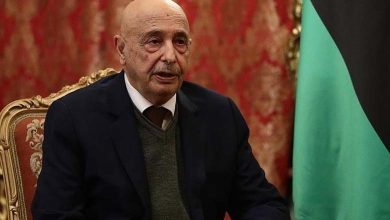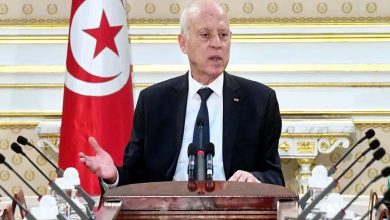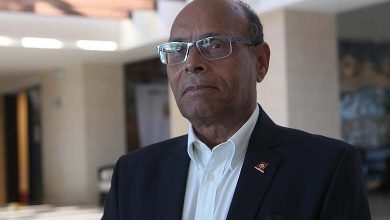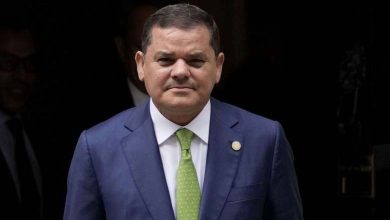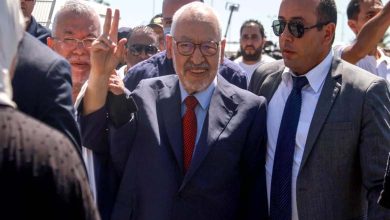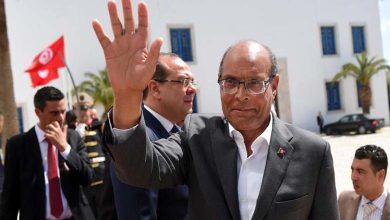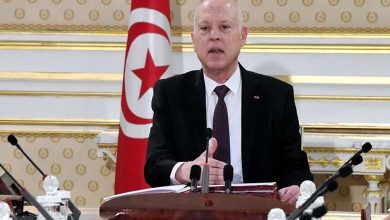The broader opening towards Morocco brings Niger closer to an official recognition of the Moroccan Sahara
Niger is adopting a pragmatic approach to revive its economy and is seeking reliable avenues to serve its interests, no longer considering Algeria as an active and trustworthy partner
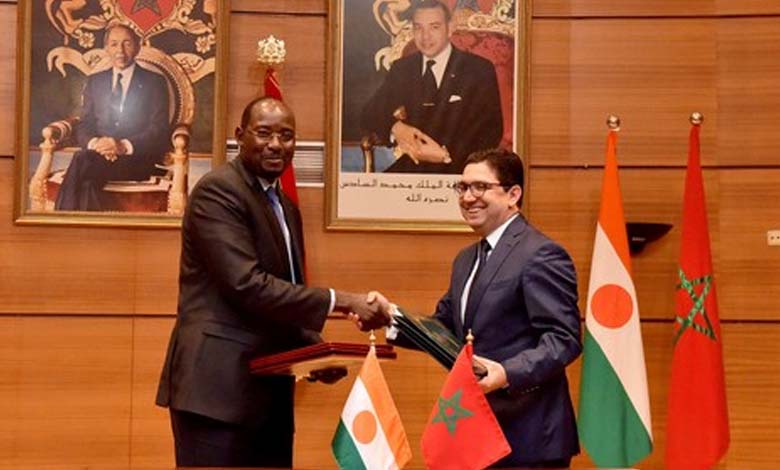
Moroccan Prime Minister Aziz Akhannouch stated that Niger’s Prime Minister Mahamane Ousmane conveyed a message from General Abdelkader Teïani, the President of the Niger National Council for the Protection of the Nation, to King Mohammed VI without disclosing its contents, as the visit received attention and interest from local media and neighboring countries, with expectations that it could lead to a potential official announcement of Niamey’s recognition of the Moroccan Sahara and the Moroccan autonomy proposal as a sole solution to the manufactured conflict, or pave the way for a subsequent announcement.
This would represent a significant strategic shift as Niger shares borders with Algeria, the primary actor in the Sahara issue and the main supporter of the separatist Polisario Front, and practically, Niamey’s engagement in King Mohammed VI’s international initiative would be recognition of Moroccan sovereignty over the Sahara, given that the maritime outlet it would obtain would be through the new Atlantic port of Dakhla.
According to a statement released on the official account of the Moroccan Prime Minister via the X website, with instructions from King Mohammed VI, Akhannouch welcomed Ali Mahaman Laouali, the Prime Minister of the Republic of Niger, the envoy of General Abdelkader Teïani, President of the National Council for the Protection of the Nation, the Head of State.
Niger is adopting a pragmatic approach to revive its economy and is seeking reliable avenues to serve its interests, no longer considering Algeria as an active and reliable partner after the recent crisis between Algeria and Mali, where the two countries are experiencing strained relations with Algeria, which is currently rushing to attract Mauritania as its remaining card to strengthen its influence, although the latter does not want to risk its relationship with Rabat and face the Moroccan Atlantic initiative.
The Atlantic initiative serves as a breath of fresh air for Niger, as well as for Mali, Burkina Faso, and Chad, and it is also a crucial link to enhance its trade exchanges, which have narrowed after the coup period and withdrawal from the Sidiaw coalition.
Niger also seeks to leverage Morocco’s extensive experience in combating terrorism, which is a challenge for Sahel countries, with both Mali and Niger wanting to reassess their positions away from the ECOWAS economic bloc, which is currently unpopular in the Sahel.
In January, the Sahel Countries Alliance, composed of Mali, Burkina Faso, and Niger, announced its withdrawal from the Economic Community of West African States (ECOWAS), which includes 15 member countries from West Africa.
Attention is now focused on the evolving relationship between Niger and Morocco, which involves many changes, particularly regarding the Sahara issue, where Niamey remains within the positive neutrality camp and supports United Nations decisions.
This relationship has garnered widespread interest from regional media, with the “Afrimag” website mentioning that the visit primarily addressed facilitating access for Sahel countries to the Atlantic Ocean, with discussions between the Nigerien Prime Minister and his Moroccan counterpart focusing on the initiative launched by King Mohammed VI to facilitate access for Sahel countries to the Atlantic Ocean.
This Moroccan initiative has garnered strong interest from Sahel countries (Niger, Chad, Burkina Faso, and Mali), indicating that Morocco, considered the first African investor in the West African region, is moving to implement a new strategy of rapprochement with Sahel countries after previously seeking to join ECOWAS.
French radio “RFI Afrique” commented on this visit, stating that “the Atlantic alliance is moving,” indicating that since the post-coup period, Niamey has been seeking to “diversify its partners,” while Morocco sees political changes as an opportunity to solidify its presence. According to the French radio, “Morocco seeks to position itself as a mediator between these new regimes and Western countries struggling to improve their relations,” while also seeking additional gains in the Sahara issue.
It emphasized that “the visit marks a new chapter in the Moroccan-Algerian conflict,” with the eastern neighbor announcing its ambition to create free exchange zones with Sahel countries in response to the Atlantic initiative.
On its part, the Nigerien news agency stated that “the visit focused on strengthening relations between the two countries,” highlighting “the Atlantic initiative announced by King Mohammed VI.”
It added that “Morocco is implementing a strategic royal initiative to enable Sahel countries to access the Atlantic Ocean,” noting that “three of the initiative’s member countries (Niger, Mali, and Burkina Faso) had previously announced their withdrawal from the Sidiaw alliance.”
The official agency stated that “the visit primarily aims to examine the development of the African Sahel region, as well as to strengthen ongoing relations between Niger and the Kingdom of Morocco, as well as with various Sahel countries.”
Discussions initiated by the Nigerien official upon arrival in Morocco, according to “ANP,” focused on issues such as establishing a Sahel countries alliance, withdrawing from the Economic Community of West African States, diversifying partners, contributing to the National Solidarity Fund, rebuilding the state, nationality, and the series of political reforms, with upcoming meetings and the need to encourage Nigerien expatriates in Morocco to invest in promising sectors in Niamey.




